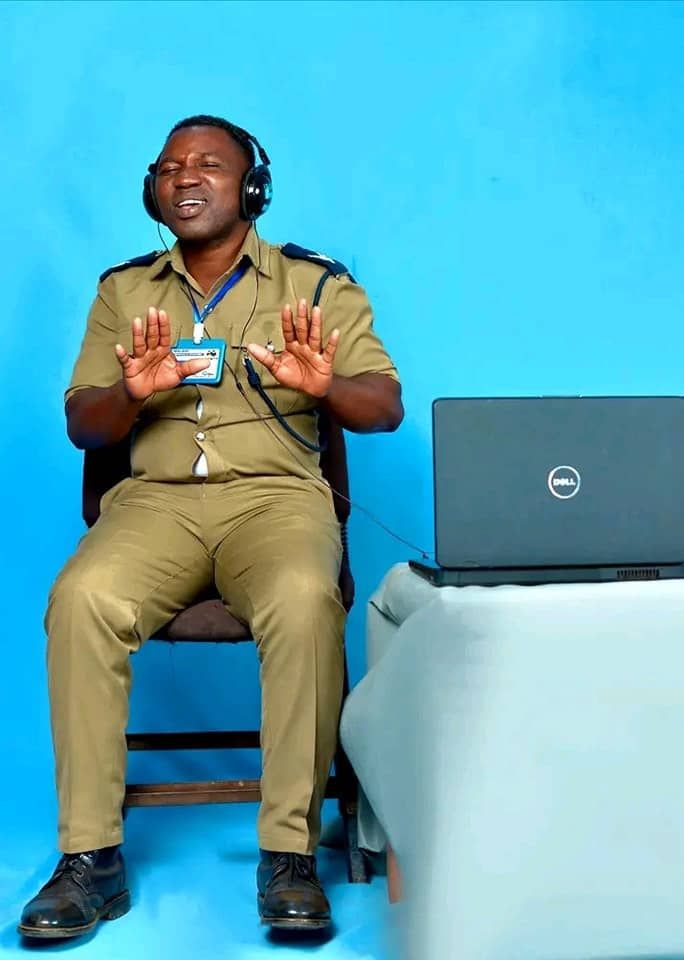By Burnett Munthali
The incident involving Sergeant Cassim Manda’s children, who sought refuge at a mosque following the storming of their residence by heavily armed police officers, is more than a mere eviction. It touches on deeper political, personal, and institutional issues within Malawi. The narrative raises serious concerns about political interference in state institutions, the welfare of police officers, and the growing tension between the state and its agents.
The claim that Sergeant Manda’s transfer from Lilongwe to the Fort Maguire border post was politically motivated underscores the intersection of politics and policing in Malawi. If true, this suggests that police officers, who should ideally serve the state impartially, are increasingly vulnerable to political manipulations.

Transfers in civil service are typically seen as routine administrative processes, but when done improperly or perceived as punitive, they become highly contentious. In Manda’s case, the family asserts that the transfer was executed outside of proper procedure, raising questions about transparency in the system. The timing of the transfer, coinciding with rumors of Manda’s attendance at a political convention, deepens suspicions of political retaliation.
The forced refuge of Manda’s children at the Area 18 Mosque is a disturbing aspect of the incident. While the police presence at the family’s home is concerning enough, the fact that the children were compelled to flee for safety reveals a significant failure in protecting the welfare of officers’ families. In any lawful democracy, the family of a public servant should not face intimidation or fear for their safety, let alone be subjected to threats of eviction. The situation not only violates the rights of Sergeant Manda’s children but also paints a grim picture of the state’s handling of internal disputes.
Institutional Autonomy in Question
Another critical dimension of this incident is the use of force by police officers against one of their own. The police force is meant to uphold law and order, and when officers use their powers to intimidate fellow officers, it signals a troubling collapse in institutional cohesion and autonomy. The involvement of armed units from A and C divisions in such a sensitive family matter raises concerns about internal discipline and the politicization of Malawi’s law enforcement system.
The family’s decision to file a complaint with the Ombudsman reflects a strong stand for justice, but it also highlights a worrying reality: that such grievances need to be addressed by external bodies because they may not be handled fairly within the police force itself. This reliance on external avenues for justice underscores the perception that Malawi’s police institutions may be compromised.
Religious Institutions as Safe Havens
The decision by Manda’s children to seek refuge at a mosque also speaks volumes about the role of religious institutions as sanctuaries in times of conflict. Mosques, churches, and other places of worship have long been seen as neutral, safe spaces in Malawi. The Area 18 Mosque provided protection not only physically but also spiritually, with the children spending their time in prayer. This incident reflects the continued trust that communities place in religious institutions as places of refuge, even when other societal structures, like the police, fail them.
Conclusion: A Need for Reform and Accountability
Sergeant Manda’s situation highlights urgent issues within Malawi’s police force, particularly regarding transparency, political interference, and institutional cohesion. If transfers continue to be seen as tools for political retribution, it will lead to further demoralization within the force and an erosion of trust in public institutions. This incident also brings into focus the importance of safeguarding the rights and well-being of officers and their families, who should not be collateral damage in political conflicts.
Moving forward, there is a need for greater accountability and transparency in how decisions are made within the police force. The involvement of the Ombudsman is a positive step, but broader reforms are needed to ensure that political considerations do not interfere with the duties of law enforcement. Lastly, the protection and welfare of police officers’ families must become a priority to prevent incidents like these from recurring.


